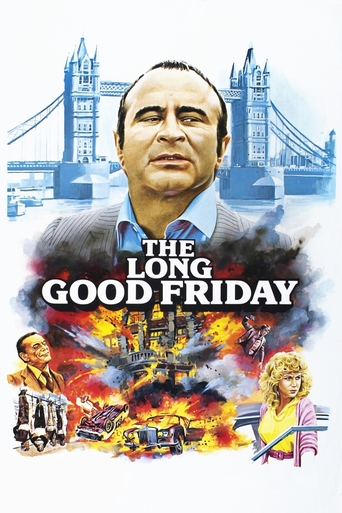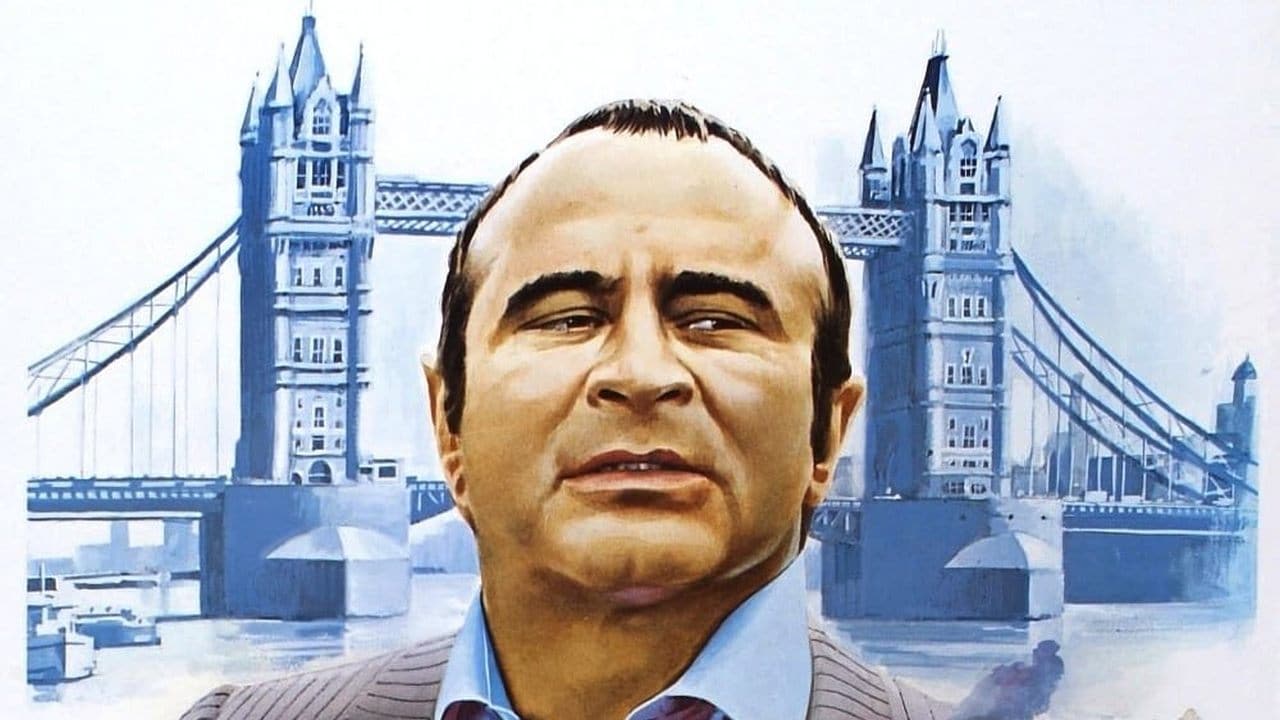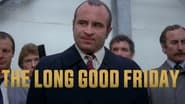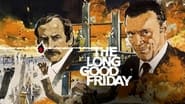dcmMovielover
As Britain enters the Thatcher era, Harold Shand, London's most powerful criminal businessman, is on the verge of turning his underworld-empire into a legitimate corporation. As much as being a metaphor for the era, Harold is a genuinely believable force to be reckoned with, having Scotland Yard Detectives and London Councillors deep in his pockets, as well as influential members of society and his 'firm' of gangland henchmen forming his inner-circle. Played with complete conviction by the wonderful Bob Hoskins as Harold, supported by the great Helen Mirren as his upper-class wife Victoria, "The Long Good Friday" is a first rate underworld-set movie which edges to the boundary of espionage thriller. It has a narrative which reaches far beyond the excellent "Get Carter" which preceded it and "Mona Lisa" which came after it, two powerful bench mark films which focused solely on the underworld. The LGF has two distinct sub-plots running side by side which have dire consequences for Harold, both of which are directly linked to his growing power. Directed seamlessly, it is only a matter of time before the two threads come together (somewhere before the film's middle) and then Harold goes about dealing with the 'problem' the only way he knows how; with unshakable belief in himself and in his abilities. If the movie poses any question for thought, then it must be one which concerns the debate over brute force Vs ideology.Spoiler Alert! As Harold's power-base and organisation grows, two trusted right-hand men (Colin of the old-guard and Jeff of the new generation) begin abusing their privileged positions within the expanding empire, operating with impunity motivated by greed and envy. When an unsanctioned 'job' for an IRA terrorist cell in Northern Ireland goes wrong, Harold's empire comes under violent retribution with premises bombed and henchmen murdered. While this takes place, Harold puts together a multi-million pound deal with American investment partners to re-develop London's rundown docklands; a project that will set an example for England's future, making it, in Harold's words "a leading European State". As the escalating destruction of his empire eventually comes to his attention (initially convinced that it must be an old underworld rival attempting to discredit him) Harold reacts with swift brutality. Unravelling the mystery, notching up murders and a terror campaign of his own, while Victoria strives to keep the lid of respectability on his empire, Harold becomes blinded by his wrath in order to reassert his authority regardless of whom against.
rooee
A year on from his way-too-early death, let's revel in Bob Hoskins' magnetic on-screen presence. His ability to switch in an instant from avuncular charm to rabid menace perfectly suits his role as Harold Shand, mob boss on London's unlovely river. The final shot – surely referenced by George Clooney at the end of Michael Clayton – is as skillful a piece of wordless acting as you'll ever see.The film opens with a series of violent killings. In a clever bit of framing, we gradually learn that the victims are Harold's goons, so we share the shock and horror he feels. Turns out that the killings couldn't have come at a worse time – the New Jersey mob is in town to sign a business deal to form a "New London". So Harold, along with his bird Vicky (Helen Mirren) and best china plate Jeff (Derek Thompson) must track down and quash the jealous culprits before the Americans turn on their heels without signing on the dotted line.It's a propulsive plot, simple until the twists start piling up. Mostly this is a character-centric play, focusing on the love triangle between Harold, Vicky, and Jeff. Vicky is the intelligent centre around which all the fellas gravitate, while Jeff is the gentle calm who shares the centre of that storm. But Jeff isn't the picture of laid-back submission he first seems. Watch his face as those lift doors slide closed – is that a glimpse of an evil smile? The Long Good Friday is fascinatingly dated. Francis Monkman's music is a strange concoction of flute-based crime soul and Phaedra-period Tangerine Dream looping electronica. But beyond that, this is a movie locked in time: the 1980 London skyline shown at the start is from a grey English era, Thatcher's long shadow looming. When Harold makes his speech to the Americans about Britain being great again, the blank stares he receives speak volumes. His desperation to rekindle his land of hope and glory is impossibly sad.Yet Good Friday is frequently leavened with humour. Whether it's a pub named "Fagan's", or Harold exclaiming "Diabolical liberty!" as he hears of his henchman's murder, there's an ironic vein of deadpan running through the script. There's something very British about The Long Good Friday's resistance to glorifying its blinkered thugs, however much we end up empathising.Which we do. In a genre better acquainted with swagger than sympathy, Good Friday stands above the pack by getting behind the macho posturing and to the heart of the mob. It's not just his business interests that are being damaged – Harold is emotionally wounded by the attacks. Sure, he responds with machetes, but the point is the script delves into vulnerable places that lesser gangster movies wouldn't dare.It might not have the grim grit of the likes of Get Carter (although one particular death is genuinely shocking), but for me Good Friday's more self-deprecating tone gives it the edge, and a timelessness that elevates this made-for-TV-for-under-a-million movie to classic status. It's the anti-operatic alternative to the glossy Godfathers and Goodfellas of this world, and an unshowy landmark in British crime cinema.
Camoo
I love it when I choose a film at random - no expectations, no preconceived notions (except that I like Bob Hoskins) and it startles me and finds a way into my system. I found it very hard to shake, haunting even, and I think about it still years after watching it. In the tradition of many great gangster films, it tells a complex story with all of the crucial ingredients including betrayal and corruption, murder, lust and an abattoir. It is epic in scope, and brutal in its narrative - following the rise and inevitable fall of a gangster, Harold, played with some kind of fury by Bob Hoskins in one of his most unforgettable roles. Hoskins has a brilliant way about him, and in many of his films he excels at showing both a vulnerability and a murderous disposition. He can make you laugh, then rattle the ground with curdling anger, often within the same scene. He is such a specific actor that it's often hard to imagine anybody else inhabiting the roles he chooses. An intense and intelligent thriller that will get under your skin and stay there.
JoshuaDysart
'The Long Good Friday' is a perfectly dated late 70's/early 80's British Gangster flick staring Bob Hoskins and Helen Mirren. Completed in 1979, but not released until 1980 (by George Harrison's company, no less), the film acts as a sort of bridge between the established violent grit cinema of the '70's and the coming slick synth aesthetic of the 80's.The movie is, mostly, perfectly balanced between classy, character driven, and wonderfully exploitive. When that balance does tip too far towards filmic excess it can sometimes take a good thing right up to the edge of self-parody. But ultimately this only serves to solidify the film's courage and amp up its spirit. Somehow the movie manages to become cooler in its few missteps than it would've been had it achieved perfection.A huge part of its elevation from "mildly inspiring" to "stupid awesome" are the performances at the heart of it. Bob Hoskins is virile, dangerous and genuinely alive. Helen Mirren is smart, collected and stunning. Their scenes together soar with such intense realism that they pull the more mundane thriller aspects of the piece up along with it. The two great actors are a rising tide for the whole endeavor.And to top it all off, the film now comes off as pretty prophetic regarding the gentrification of London and the arrival of the UK's role in New Europe, even as the UK struggled with their own militant troubles at home. This theme is perfectly capped when Hoskin's delivers a "Network"- style visionary speech about England emerging from the post-war dregs into the heightened capitalistic fervor of a new era at the end of the film. Along with the very last shot, it's a legendary piece of cinema.If the camera-work is sometimes pedestrian (it is) it's certainly saved by Francis Monkman's ridiculously cool, driving electronic jazz/funk score. The music screams - sometimes too loud - over the images, often drowning out all other sound until you're left with just the gleam of pure, stylish cinema, the kind that Michael Mann would soon after turn into the very look and feel of the '80's with 'Thief'.And if that's not enough to sell you on this great, great flick, it also features a baby-faced Pierce Brosnan in his first film role as a virtually mute hit-man.Such a good time.


 AD
AD


















